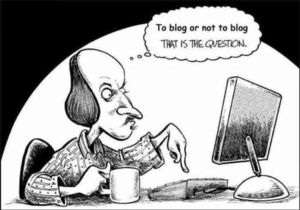Because it lays the groundwork for your résumé.
Many people think cover letters are optional.
They’re not.
The smartest job seekers know that writing a cover letter — even if it’s not asked for — brings with it a bushel of benefits.
Preparing
For your prospective employer, a letter shows that you’re a serious candidate; the extra effort evinces a robust work ethic. For yourself, writing a letter helps you develop the elevator pitch you’ll need for an interview. After all, you’ll need these tailored talking points at some point; why not get a head start now?
Explaining
Similarly, a cover letter allows you to preempt questions that your résumé might raise. Were you un or underemployed for a certain period? Do you lack a key requisite? Are you switching professions?
None of these issues is a deal-breaker, but each calls out for an explanation — if not now, then later. A cover letter provides the perfect place to clarify and calm any potential concerns while you can. Otherwise, you might not get the chance.
Showing
Here’s another benefit: Many job descriptions say they’re looking for someone with “strong communication skills.” On one hand, you could reference your “strong communication skills.” On the other hand, you could validate this skill by showing it off.
In fact, a cover letter allows you to show off not only your skills, but also your personality. Granted, some organizations prefer a “just-the-facts” approach (lawyers, government officials, the water company). But most people want to glimpse your character — to ascertain if you fit their all-important company culture — before they offer you a job.
Framing
Another myth, equally common, is that a cover letter simply recaps your résumé.
That’s what an amateur does.
By contrast, a pro knows that a cover letter frames your résumé. It establishes themes and conveys a narrative. As a result, by the time a recruiter gets to your résumé, she already knows the big-picture facts about you and can thus focus on the specifics that separate you from the other 347 résumé peddlers.
For example, it may be perfectly clear to you that you’re qualified for the job at hand. A cover letter helps you to make that connection explicit — to identify how your capabilities line up with their requirements.
EAR
In reading a cover letter and résumé, every recruiter is asking three questions:
1. Are you excited about the job?
2. Are you able to do it?
3. Are you the right person for it?
I call this the “EAR” test — are you excited, able, and right? (Or, less memorably but perhaps more precisely: Are you passionate, qualified, and the best candidate?)
While #2 (your aptitude) can be communicated in a résumé, #1 and #3 (your attitude) cannot. And that, friends, is why you write a cover letter: To present the full picture of who you are, unbounded by bullet points and limited only by your power of persuasion.
Jonathan Rick helps people brand themselves better, whether through a cover letter, elevator pitch, résumé, or LinkedIn profile. He’s available for individual consultations and group workshops.
A version of this article appeared in the Freelancers Union on May 20, 2020.



